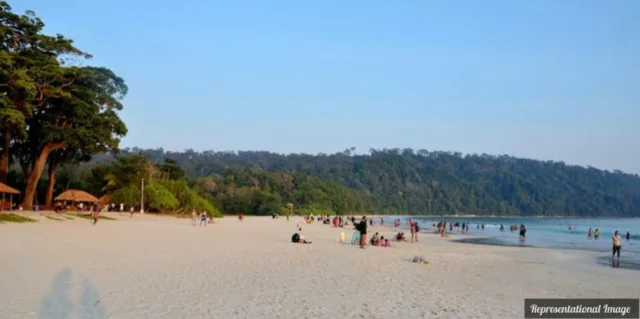Creating ‘Sea Hubs’, coastal co-working spaces along Goa’s shoreline not only has the potential to revitalise the state’s bouquet of tourism offerings, but can also provide a shot in the arm for the state’s economy and attract promising talent to the state; according to the experts.
At last week’s StartUp20 Engagement Group meeting, Goa’s IT Minister Rohan Khaunte had said that the state government was in the process of setting up 12 co-working spaces or ‘Sea Hubs’ along the shoreline which would be fashioned as creative hubs where young professionals could work in the lap of natural beauty.
According to V Padhmanabhan, Associate Professor, Organisational Behaviour and Human Resources at the Goa Institute of Management (GIM), setting up work hubs in a natural setting such as beaches could boost creativity, lessen stress and promote general health, while also boosting output and job satisfaction.
“The move can attract good talent, who can happily include leisure and relaxation into their everyday routines thanks to the existence of working spaces in these locations. For a better work-life balance, employees can take breaks or leave work early to engage in outdoor activities. People can remove or greatly minimise their need for long, stressful commutes by working in such settings,” Padmanabhan said.
Goa, Padmanabhan said, would greatly benefit from such co-working spaces which could potentially draw a variety of people, including national, international talent and experts from different fields.
“The presence of co-working zones in these areas can foster networking, teamwork and knowledge sharing,” he also said.
Young professionals, especially those in the creative and technology sectors in the recent past — during and after the pandemic — had made a beeline for Goa at a time when remote working was in vogue. Goa also witnessed a spurt of co-working spaces, where professionals, instead of hiring individual office spaces, could work in co-working spaces, thereby reducing establishment costs.
Creation of Sea Hubs, according to Aaron Fernandez, founder of Kilowott, a Goa-based technology company, would push the co-working space envelope further by creating a more empowering eco-system.
“This would elevate Goa’s status on the business map and also create an empowering ecosystem where young, emerging professionals can harness their creativity and talents while maintaining a harmonious work-life balance,” Fernandez said.
Fernandez also said that the Goa government’s plans to create a ‘Design Village’ and a ‘Creative Hub’ for artists, innovators and fin-tech, fashion-tech VFX and augmented reality and virtual reality professionals respectively would provide a nurturing environment to push the boundaries of creativity further.
Rohan Warty, secretary of the Goa Technology Association, says that the move to create Sea Hubs would also create more jobs in the state, while also aiding the advancement of talent and technology in Goa.
“We have seen co-working spaces on a small scale already existing informally in Goa post the pandemic. However, now with government support, it will provide a more structured opportunity for professionals across the globe. Increased presence of businesses will directly contribute to the economy. Hopefully, this initiative will attract big companies by showing them the scope for scalability in Goa,” he said.
‘Sea Hubs’ according to Nilesh Shah, president of the Travel and Tourism Association of Goa, would create a symbiotic relationship between work and leisure, which he says, holds the key to reviving tourism in the state, which is a vital pillar of the state’s economy.
“In the wake of Covid, a new phenomenon emerged: the work-cation, bringing together professionals from diverse backgrounds to work remotely. Hotels seized this opportunity, introducing the concept of workation. It presents a golden chance for nomadic employees and those craving a home office experience. With its breath-taking landscapes, Goa stands as the perfect destination for these intrepid explorers,” Shah said.






